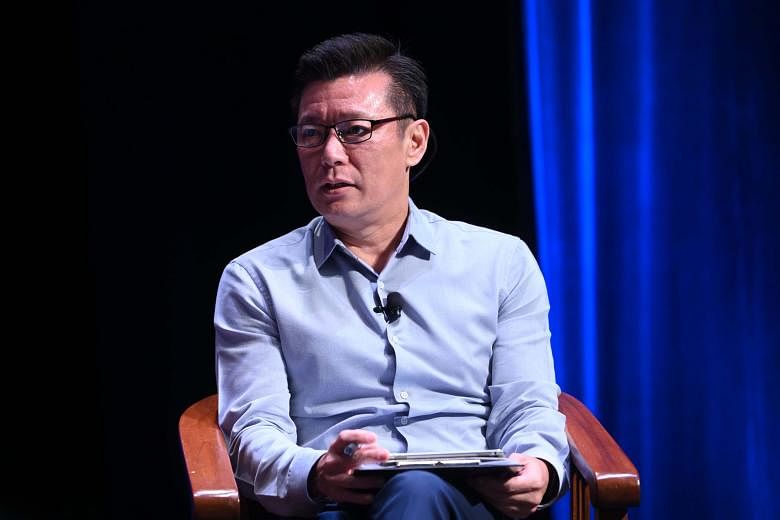SINGAPORE - Having open conversations about race is important, and newspapers like Lianhe Zaobao play a role in providing a platform for differing views, the Chinese daily's editor Goh Sin Teck said Friday (June 25) at a forum on race.
Responding to a question on why the paper had published a recent editorial on race that drew criticism, with a forum participant saying it "stoked racist sentiments", Mr Goh acknowledged the risk that comes with discussing such issues openly.
"But there's also a risk if you don't discuss it, and we don't talk about it, then if something major happens... (the situation may) just explode," he noted at the forum, which was organised by the Institute of Policy Studies and the S. Rajaratnam School of International Studies.
In publishing pieces that discuss issues of race, Mr Goh said the paper ensures that the tone and language of such pieces are carefully calibrated, and that the authors are sincere in wanting to discuss issues, instead of merely stoking emotions.
"When we start talking about this, it is inevitable that you have people from different schools of thought... and then we have to accept that there are people who don't actually share such views.
"And we have to start to learn how to... open our hearts and minds to also listen to people who have different views," he said, adding that the newspaper can provide such a platform for the exchange of views.
The editorial, which was published on June 9 and titled "Expanding public space to promote racial harmony", had analysed the issue of race relations from three different aspects. It explained that the pandemic, the role of social media and popular ideological trends from abroad have all exacerbated racial tensions.
Critical race theory - the idea that racism is not just about personal prejudice but is also embedded and perpetuated by systems and policies, and which originated in the United States in the 1970s - was cited by Zaobao as an example of the influence of foreign ideas.
It prompted an open letter signed by over 200 people, namely academics and researchers, which criticised Zaobao for ignoring the dynamics of structural racism and for misrepresenting critical race theory as "promoting hatred of white people" in the United States, and by extension, of Chinese people in Singapore.
At the forum, Mr Goh explained that the term "Chinese privilege" could be misinterpreted by the Chinese-speaking community here.
It is a term adapted from the concept of "white privilege" used in critical race theory originating from the US, where privilege gives someone dominance in a society because of identity markers such as one's race or sex.
He said that while academics may understand what the term "Chinese privilege' refers to in an academic context, it can be misunderstood by the Chinese-speaking community, who have suffered marginalisation due to their lack of fluency in English.
"They would say - ' What privilege do I have?' And then, instead of forging understanding, we end up dividing people," he noted.
He added that the Chinese-speaking Singaporeans who say they do not enjoy any privileges are also misunderstood by others, who take an academic perspective and accuse them of denying that racism and racial discrimination exist in Singapore.
"This is not what they mean. They are just saying that as a Chinese-speaking individual, I don't see that I enjoy any privilege at all... (Then) this misunderstanding becomes even deeper," said Mr Goh.
He called for open communication when conducting conversations about race among different groups, and appealed to Singaporeans to try not to use sweeping statements in such discussions.


